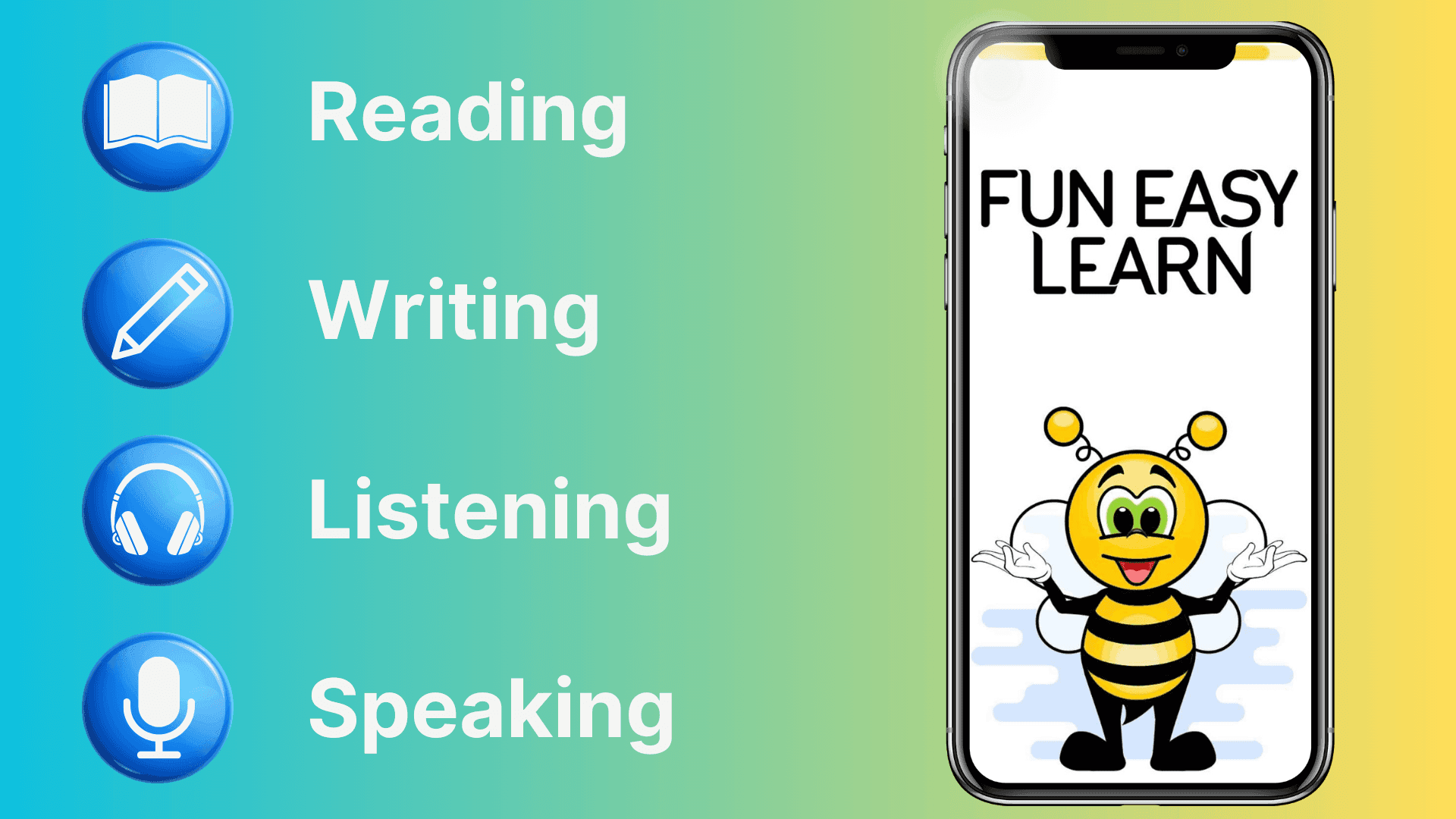To fluently speak a foreign language, learners must master the four fundamental language skills - reading, writing, listening, and speaking. Each is indispensable to successfully communicate in a new language by exchanging information. Of course, you can learn one or two skills, like listening and reading, for basic communication. In fact, that is something many learners do, especially when time is of the essence. However, that limits your ability to fully understand and communicate in a language. If you can't read in a foreign language, you risk missing out on important information on road and door signs, warnings, restaurant menus, official paperwork, and more.
What Are the Four Fundamental Learning Skills
The four basic language skills are reading, writing, listening, and speaking. Each of these contributes to building fluency in a foreign language. These aspects are tested on popular international language tests such as IELTS and TOEFL for English learners, DELF for those learning French, DELE or SIELE for Spanish learners, and so on.
Reading and listening are reception skills, as you receive information through them. Speaking and writing are productive skills, as you express your thoughts through them. To successfully write and speak in a new language, you must first read and listen to correct examples. FunEasyLearn achieves that by including the top high-frequency words and sentences that build your confidence to start speaking and writing as soon as possible.
How to Best Practice Reading, Writing, Speaking and Listening
Integrating the main language skills is the most effective way to practice them. What does integrating mean, more exactly? It means using all four skills in your daily practice. In other words, you do a bit of reading, writing, listening, and speaking through games, exercises, and other activities. More advanced users or those preparing for international exams can use different techniques to refine each skill individually.
FunEasyLearn has successfully integrated the four core language skills in over 30 educational games. They each focus on at least one of the four skills, but most include two, such as reading and listening. This holistic approach to learning is applied in formal and informal language learning settings, such as schools, universities, and training programs. As an independent learner, avoid ignoring one skill for too long. Even if you don't see the immediate application of reading or writing, for instance, they play a crucial role in both listening and speaking.
How FunEasyLearn Helps You Build All Four Skills
Each FunEasyLearn course includes practice for all four key language-learning skills - speaking, listening, writing, and reading. As a learner, you get to practice them separately or train two or more aspects within the same activity.
The app features a structured learning path that aligns with international language standards. Learners progress through 10 proficiency levels aligned with the CEFR (Common European Framework of Reference for Languages). Each level integrates the core language skills: reading, writing, speaking, and listening. It provides graded complexity in the same system that international language tests use to assess a learner's level. Combining the app with other resources based on the same system is easy and practical.
Reading
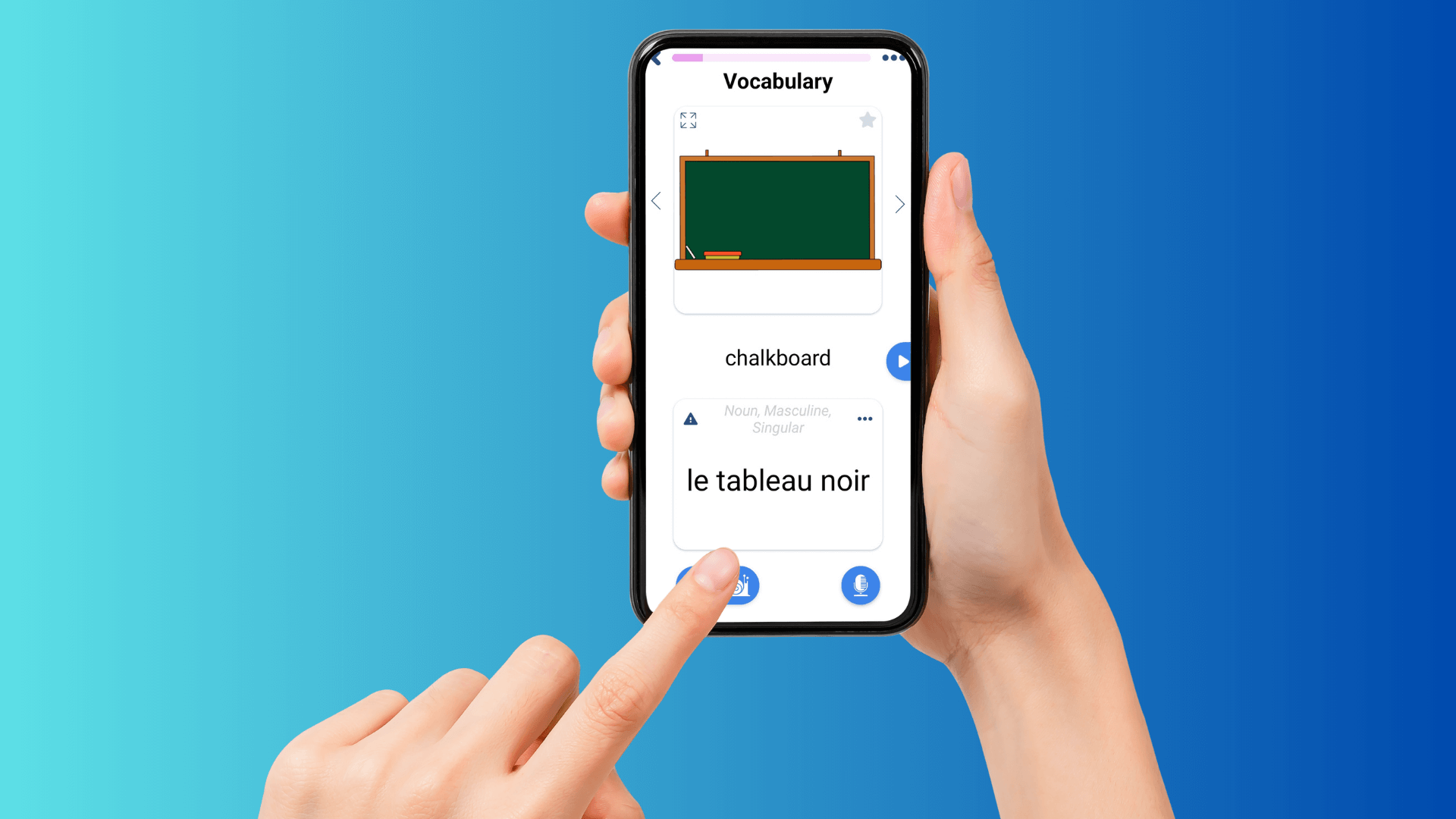
When learning a new language, reading is essential. It helps build and expand your vocabulary and understand grammar rules intuitively without cramming them. The more you read in a foreign language, the faster you grasp the meaning of words, phrases, and expressions. Reading directly impacts your fluency in the language you are learning.
With FunEasyLearn, reading starts with the alphabet and reading rules. Most games integrate reading, a powerful and indispensable way to practice vocabulary. Some examples are "Choose word," "Choose sentence," "Match Words," "Complete Sentences," and "Match Sentences."
Writing
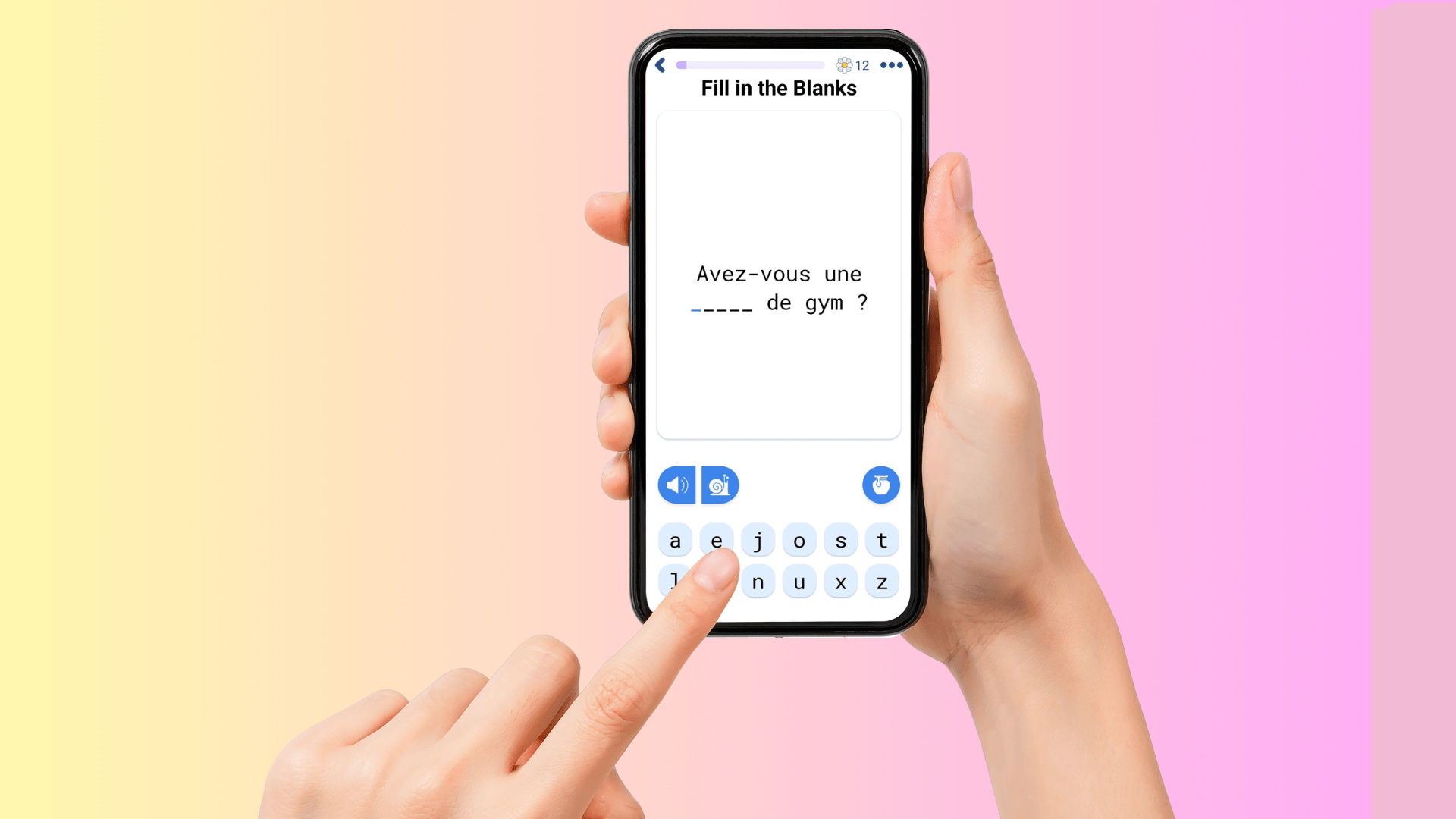
Writing is like speaking in slow motion. Its main advantage is that you have enough time to think about every letter when practicing spelling. That, in turn, improves reading. Moreover, we read a word several times when writing to check for spelling. As a result, we memorize the word better and for longer.
Language learners using FunEasyLearn practice spelling by filling in the missing letters. Another practical exercise is the daily challenge - Guess the word. It’s a fun way to retrieve a word from memory based on the hints provided. If you learn more than one language, you can play it once daily for each, as they feature different words.
Listening
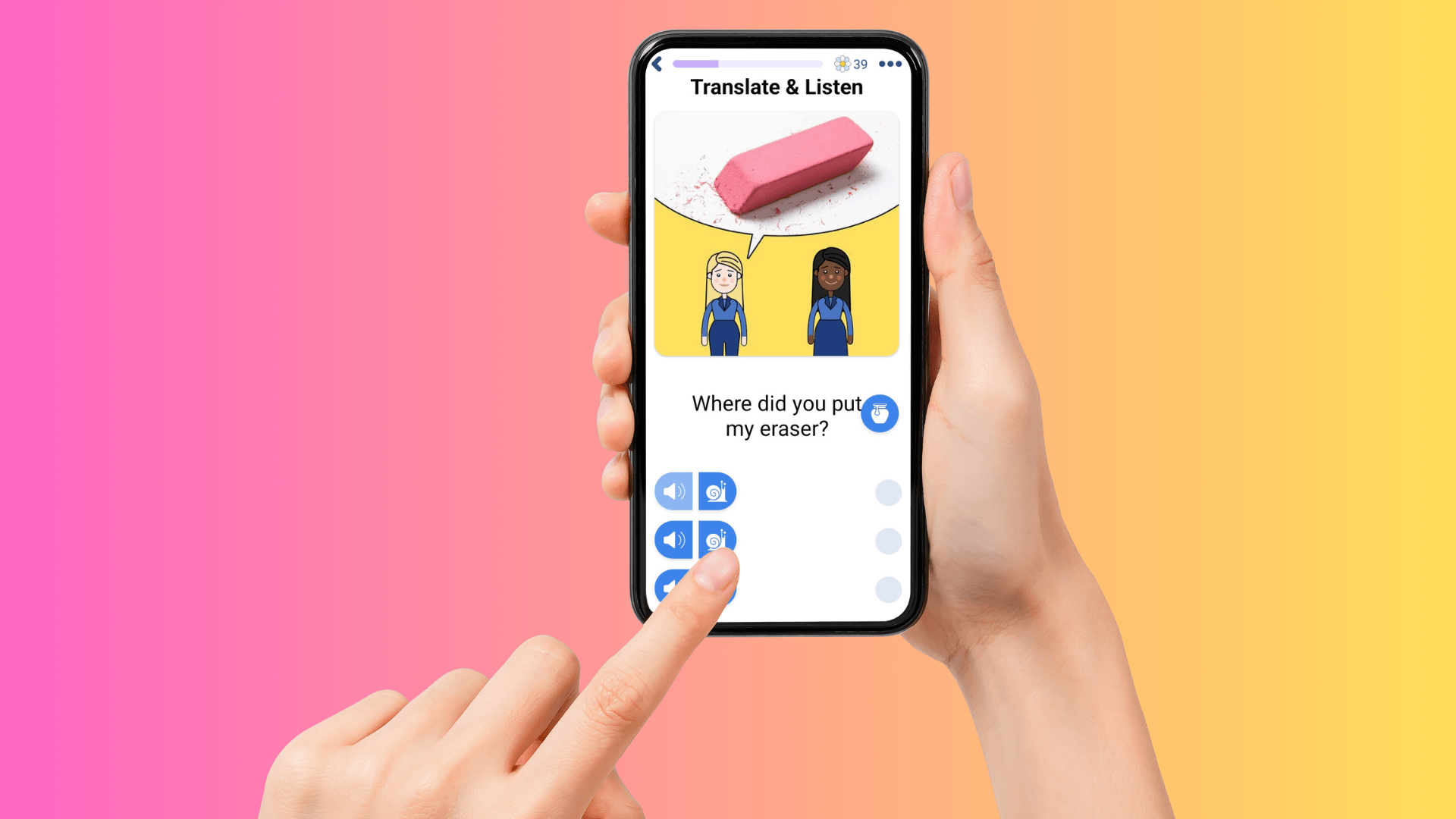
Authentic audio material is essential to understand a foreign language. It is considered one of the most challenging skills due to the various accents and individual vocabulary choices. When we are young, our brains learn to recognize certain sounds and make sense of them later. When learning a foreign language, we may not even hear some sounds that are new to us. Therefore, exposing oneself to audio in the language we’re learning is essential. Besides eventually grasping the meaning, we also pick up sounds, word stress, and inflection, all useful to understand a message and incredibly helpful when producing the language.
FunEasyLearn uses audio files recorded by native speakers in professional studios. The words and sentences are excellent examples that learners can imitate and add to their active vocabulary. This ensures accurate pronunciation and efficient communication. Some of the games focusing on listening in the FunEasyLearn app are "Listen & Choose" and "Translate & Listen."
Speaking
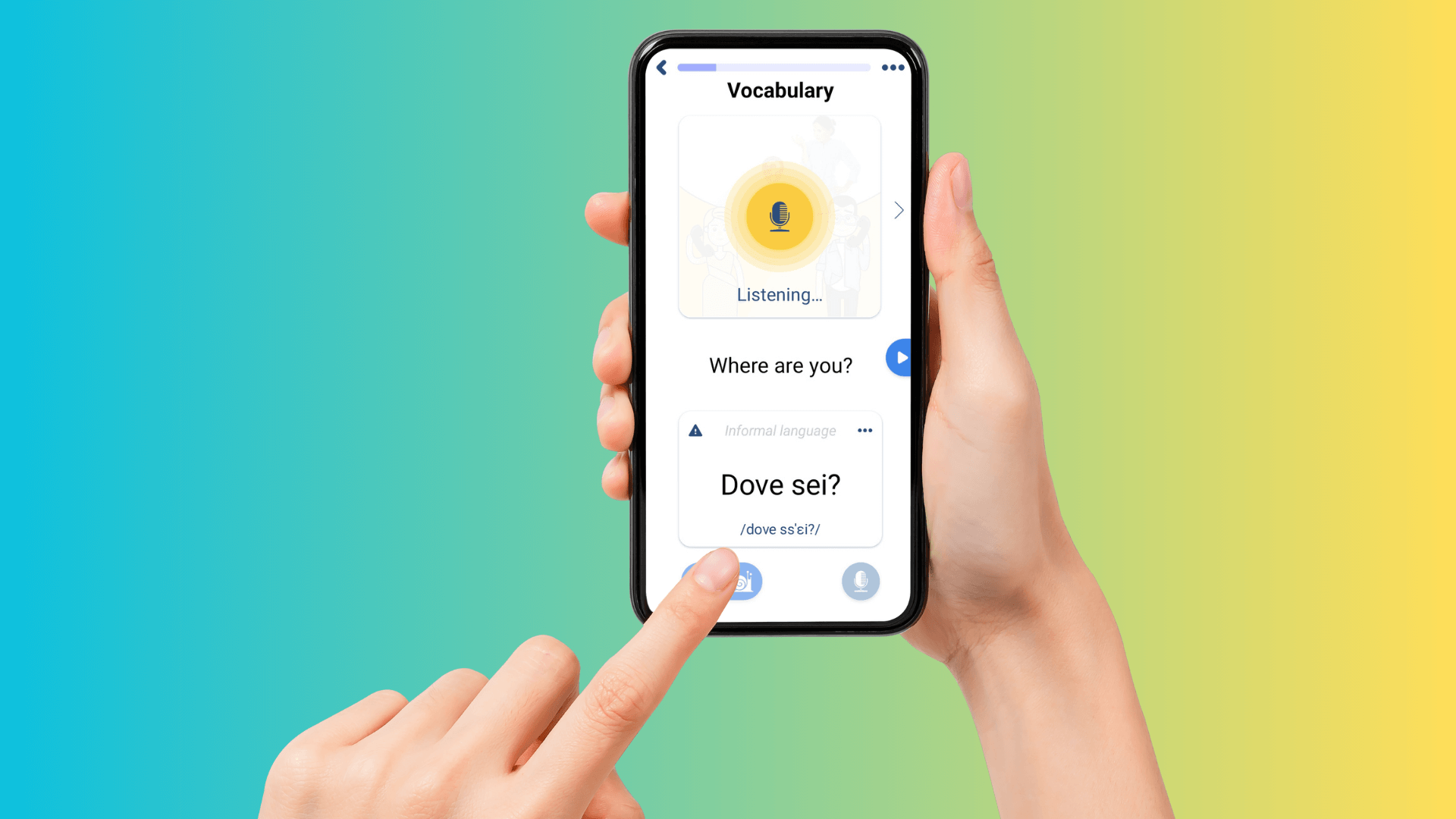
Speaking is the language skill that gets the most attention. And for good reason. Most learners need to start speaking in a new language quickly and well. What they often overlook is that the three other skills contribute to verbal communication by building a solid vocabulary and fluency in a foreign language.
FunEasyLearn uses advanced speech recognition software that offers immediate feedback on pronunciation. If you get it wrong on the first go, you have unlimited attempts to practice and improve. This is especially important when learning languages that belong to a different family from your mother tongue. Another important category is represented by tonal languages, including Chinese, Thai, Navajo, and others. With those, it is important to prioritize pronunciation.
Integrated skills
FunEasyLearn enables you to practice at least two language skills when playing any game. In real life, we rarely use only one skill. We read and listen to receive information, and we write and speak to discuss the information we have received. Moreover, each skill reinforces the others. So, practicing more than one skill equips you with the knowledge you need for real-world information.
FunEasyLearn offers a wide choice of games aiming at integrating the four basic language skills, including the following:
Reading and Writing
- Choose Word
- Fill in the Blanks
- Translate Sentences
- Make Sentences
Listening and writing
- Listen & Write
Reading and Listening
- Listen & Choose
- Listen & Write
- Find Image
Reading, writing, listening, speaking
- Vocabulary
- Mixed Game
Customize Your Experience
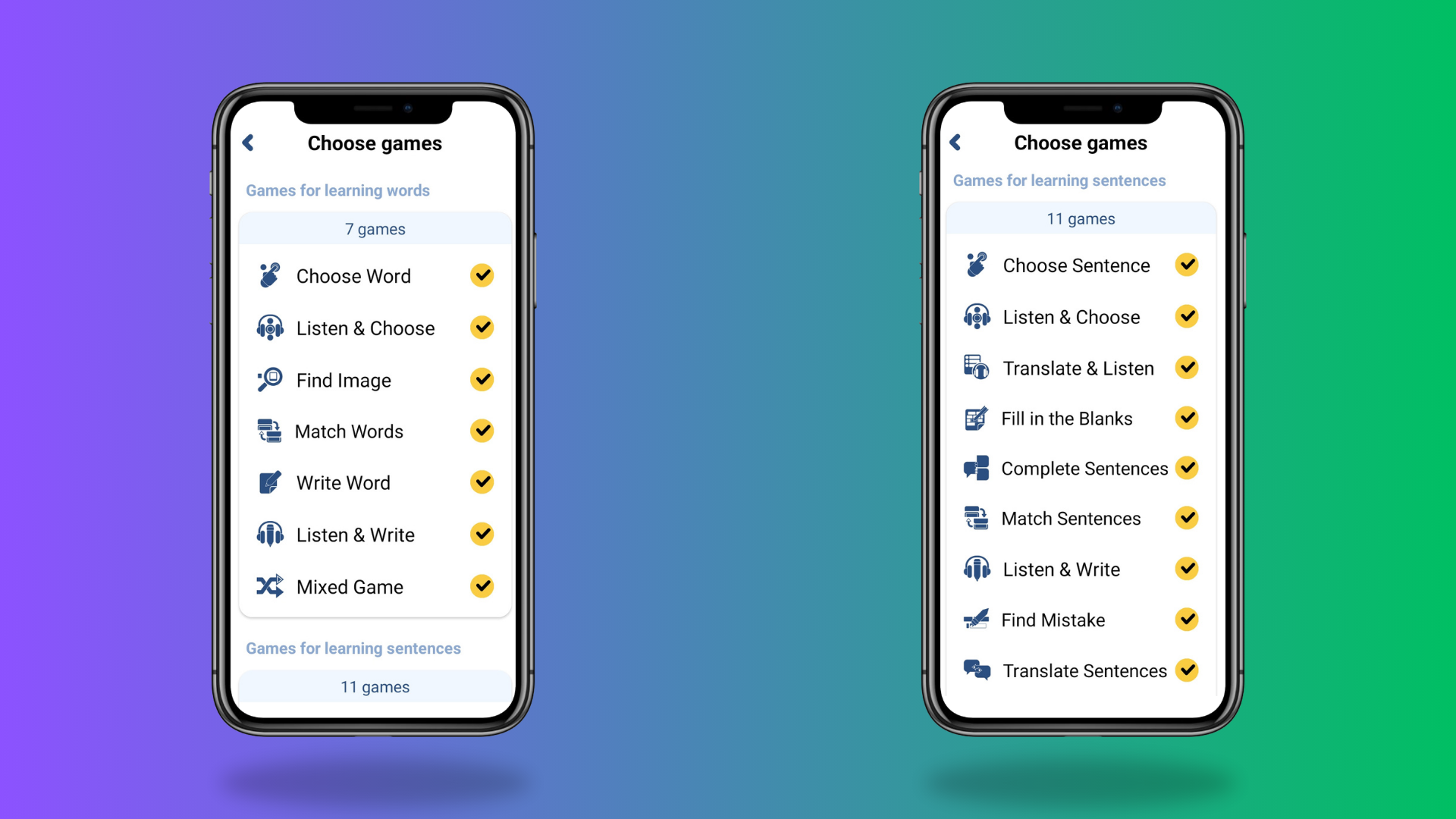
If you need to focus on one of the four basic language skills, you can choose the games you most need or enjoy. All you need to do is access settings in the bottom right corner of your current course, go to "Learning Modes," and open "Custom games" to select the types of games you want to play. For example, if you want to practice listening, select "Listen & Choose" - a game where you need to find the correct translation out of three options.
Final thoughts
The four essential language-learning skills are reading, writing, speaking, and listening. Balancing them when practicing a new language helps learners build fluency faster. With FunEasyLearn, you practice at least two language skills simultaneously, ensuring better retention and retrieval of words, phrases, and sentences.
Practice the four basic language skills daily - reading, writing, speaking, and listening.







